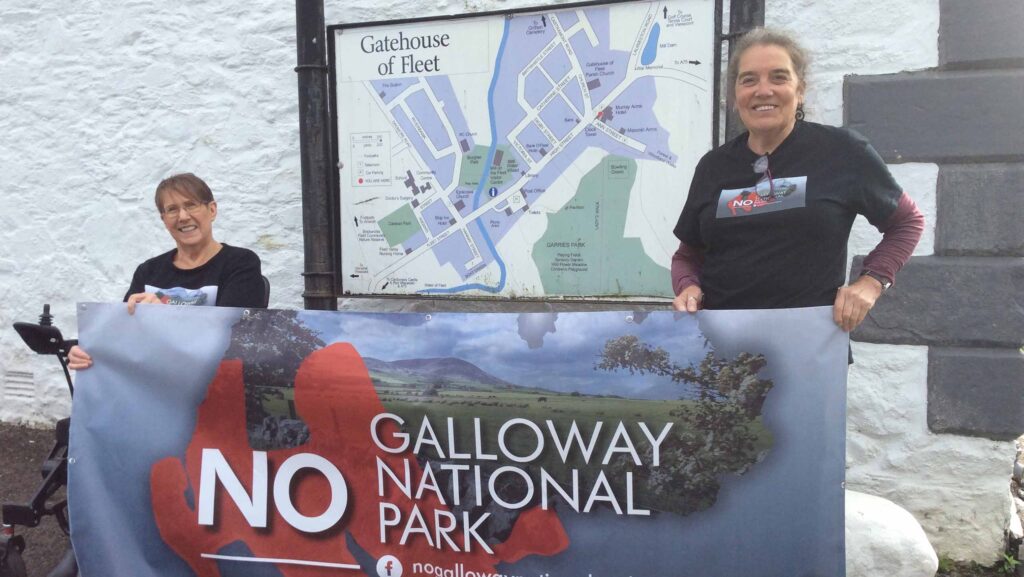Galloway national park opponents allege dirty tricks
 Liz Hitschmann (left) and Denise Brownlee © No Galloway National Park Campaign
Liz Hitschmann (left) and Denise Brownlee © No Galloway National Park Campaign Campaigners opposing the Scottish government’s plan for a Galloway National Park have condemned what they describe as a “dirty tricks” campaign by supporters of the proposal.
Opponents claim that their banners have been torn down and their social media posts have been blocked or removed, escalating tensions around the controversial project.
The No Galloway National Park campaign reported that banners opposing the park were removed from three locations, while posts on their Facebook page were blocked, labelled as being from “dangerous individuals or organisations”.
See also: Proposed national park in Galloway prompts farmer backlash
Co-founder Liz Hitschmann criticised these actions, stating that such tactics only strengthen their determination to oppose the plan.
Farmers like Dawn Millar and Robert Gladstone have experienced similar issues, with banners placed on their property being taken down.
Ms Millar, who runs a beef and sheep farm with her husband at Ringford near Castle Douglas, said her banner, placed at a prominent location by the A75, was removed while she was on holiday.
Both farmers labelled these actions as attacks on free speech, with Mr Gladstone calling it a “criminal act”.
Politicians, including Conservative MP for Dumfries and Galloway John Cooper and SNP MSP for Inverness and Nairn Fergus Ewing, have also voiced their concerns.
Mr Cooper said he was disappointed by the tactics used, adding that the plan is causing significant division within the community.
Mr Ewing condemned the “extremist tactics” and raised concerns about the bureaucratic and financial burden a new national park in Galloway could impose on local businesses.
Farming opposition
The Scottish government says the joint proposal from the Galloway National Park Association and the Galloway and Southern Ayrshire UNESCO for Galloway to become a new national park is “community-led” and has “the backing of many local businesses.”
However, opposition to the park is strong among Scottish farming and rural organisations. NFU Scotland (NFUS) and Scottish Land & Estates (SLE) have found overwhelming opposition in the region.
A recent survey of almost 2,000 NFUS farmer-members revealed that 73% were against the park, while SLE argued that the park’s supporters have failed to explain its tangible benefits for the region.
The Scottish government’s consultation process, conducted by NatureScot, is ongoing, with a final decision expected in April 2025.
Critics, however, believe the consultation lacks transparency and that the creation of the park is a “done deal”.
As tensions rise, campaigners against the park insist that they will continue their efforts despite the challenges, calling for a fairer consultation process.
